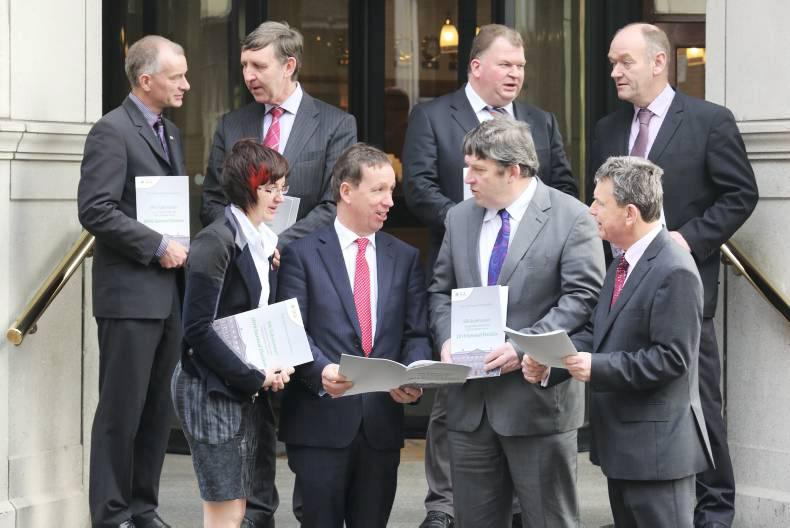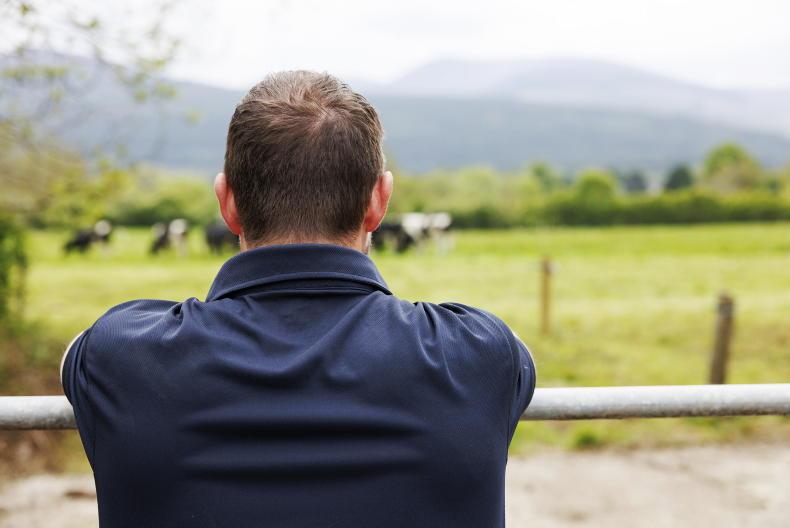The IFA’s interim leadership firmly outlined the priorities for Irish farming in a wide-ranging press conference on Tuesday.
National chair Jer Bergin fielded questions, with a number of commodity chairs – including presidential candidates Flor McCarthy and Henry Burns – adding their input.
In terms of farm schemes, the key requirement for the IFA is that there must be €580m of annual RDP spending, from a combination of national and EU funds.
“CAP will come up for discussion in Brussels during the lifetime of the next government,” said Bergin, and active farmers must be supported.
Similarly, trade talks must be closely watched by government, with opposition to any deal that would undermine the incomes of EU and Irish farmers.
Beef
Much focus centred on the beef sector, with questions over the relevance of the Beef Forum and the vexed issue of the price gap between Ireland and British beef.
“Irish cattle can be sold to Italy, Germany or anywhere else in Europe and get the full supermarket price. You have to conclude that there are forces at work to stop that happening in the UK, which is both our closest and our most important market,” said Henry Burns, the livestock chair.
“The minister has led trade missions to China and the US, but we need a commitment from the next minister that he will address this issue as a priority. The gap between Irish and UK beef was 28c/kg this time last year, it’s 82c/kg now, that’s not good enough,” Burns said.
On the relevance of the beef forum, Burns said there was a necessity for a referee to ensure fairness in the relationship between 100,000 farmers and a processing sector where three groups have approaching 70% of the kill. Ordinary farmers don’t have a choice; they have to sell their cattle, when fit, to someone”.
Retail regulation
It’s not just processors that farmers need protection from. Bergin called for strengthened legislation to oversee retailer behaviour, with a ban on below-cost selling.
Increased price transparency, including compulsory disclosure of retailer profits, were listed as being capable of helping to rebalance bargaining power in the supply chain.
Taxation
On taxation, the focus was on retention of existing measures, and the development of a measure to counter volatility.
“We need to allow farmers to put something away in the few good years to use in the poor years,” said Tim O’Leary, pointing out that the volatility cycle now saw short peaks and longer toughs.
There are also calls for the likes of Teagasc to promote risk management tools, and to help train farmers in risk management.
Farm Business chair Tom Doyle added that fair access to third-level grants was vital for farm families. “A high proportion of farmers have low incomes, which is why they are eligible for college grants, and why they don’t pay high levels of tax,” Doyle said.
There was a call for compensation for all designated Special Areas of Conservation and Natural Heritage Area lands. When asked to quantify how much this would cost nationally, rural development chair Flor McCarthy said: “If there was full compensation for the losses farmers suffer, it would be a very high figure – too high to be payable.
Combination
“We are looking for a combination of a compensatory payment and an easing of unnecessary restrictions, so that farmers are better able to gain an income from their land.
“A lot of the problems in the Shannon region are caused because it hasn’t been dredged, due to environmental restrictions,” he said, highlighting the Burren scheme as an example of how to do things better.
McCarthy and Bergin both pointed out that restoration of disadvantaged area payments to pre-2008 levels would help these farmers. “The budgetary cuts hit the lowest-income farmers worst, and the designations are restricting the same people,” said Bergin.
Bergin and environmental chair Harold Kingston firmly scotched any suggestion of a compulsory obligation on tillage farmers to grow biomass crops. Stories had recently circulated to that end.
“An absolute ‘no’ to compulsory participation in biomass crop production,” said Bergin, “send that idea back to wherever it came from.”
Kingston suggested that there could be confusion over the IFA’s proposal that farmers have the option to voluntarily grow biomass crops, such as miscanthus and willow, on land set aside as environmental focus area (EFA). Farmers are required to have 7.5% of their land designated as EFA.
Other issues mentioned were a decent budget for rural road maintenance and repair, and increased garda resources to tackle rural crime.
On the Fair Deal scheme, there was a call for a cap on the maximum percentage charge that can be applied to non-residential assets in all circumstances.
A parallel demand is made for where a transfer has been made within less than five years. In this case, there was a call to set a limit on the percentage of the asset value that can be charged against the cost of care of the former owner.










SHARING OPTIONS